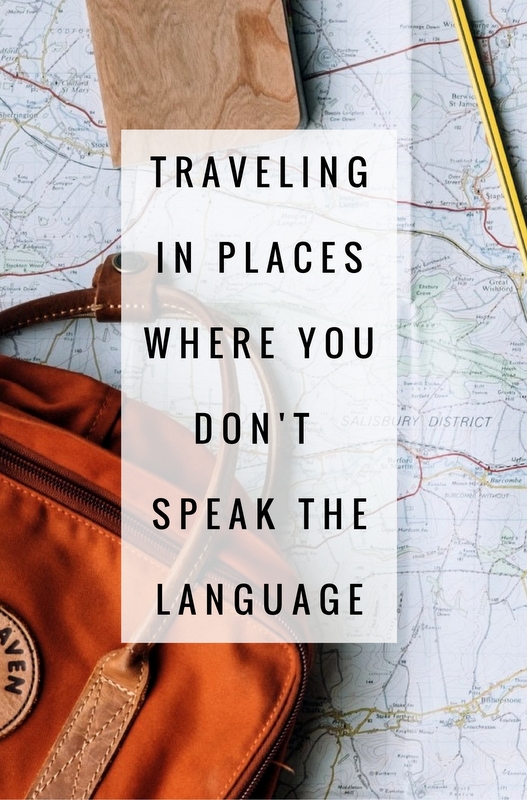Authored by Lingoo
If your first language is English, it can be easy to take advantage of the world dominance of the language. In many countries we can get by okay, and with some accompanying hand gestures generally make ourselves understood.
But if you are travelling for new experiences, sticking with your mother tongue will mean you are missing out on opportunities to learn about and truly appreciate other cultures.
The Best Way To Learn A New Language While Travelling
Why Learn Another Language
Learning a new language while you are travelling opens up your world to more interactions with interesting people and will take your travel experiences to a deeper level. As you learn to converse with people you would probably otherwise not, you will also gain more confidence.
Don’t be surprised to be invited to dinner with people whom you have just met, or gain access to adventures beyond the usual tourist trail. In short, learning another language as you travel will open doors that you never even knew were closed.
Beyond travel, having knowledge of another language is also advantageous because you get to take home your new language skills. This will look great on your resume and, with more and more companies operating in a global market these days, give your career prospects a nice boost.

Match Your Travel Destinations
First of all you need to match your travel destinations based on the new language you want to learn.
Want to dig out that high school Spanish? Spain is obviously a great choice but there’s also virtually the whole of Latin America using Spanish as their official language.
Fancy perfecting your French? France is the obvious choice and a good one, but there other countries in Europe such as Belgium or Luxembourg, and many African countries also speak French.
Next up, don’t take the easy route! It’s human nature to seek the company of those who speak the same language as us, but if you are serious about learning a new language you must try to resist this somewhat.
Put Yourself into Real Life Situations
You need to minimise the amount of time you are speaking English and maximise the amount of time you are speaking your new language. You should aim to move from translating everything in your head to thinking in your new language as soon as possible.
Force yourself to speak the language you are learning at every opportunity, even if you know the person you are interacting with speaks English. Get started by purposefully going to the local market to practice speaking.
Stop people in the street and ask for directions to places, even if you already know where you are going. Strike up a conversation with the person behind you in a queue.
It may seem a little scary at first but it will soon become comfortable. You should also practice on your own. Online apps such as Duolingo or Babbel are great for building your vocabulary and improving grammar.
Overcome the Fear of Mistakes
Learning a new language while you are travelling can be tough and you will no doubt hit a few plateaus, so be sure to motivate yourself by reflecting often on how much much you’ve learnt and the interactions you’ve had where you have been able to get closer to people.
Try to overcome any fear of mistakes as soon as possible because as a language learner you are going to make plenty of them. It’s how you learn. Through letting go of your inhibitions and acting like a child when you speak will help you improve.
If you don’t understand something, don’t just nod and smile, ask questions. It will be a challenge and you may feel foolish to start with, but once you can see yourself improving, that will motivate you.
You will find that through being in the country where the language is spoken, corrections to your speaking and pronunciation happen naturally. You need to learn to not take this constructive criticism personally because it unbelievably helpful.
And when you are not involved in a conversation try to hone in on others’ and actively listen to see if you can pick out words and follow the dialogue. Be sure to listen to the local radio and TV channels too.

Best Language Immersion Programs
When studying a new language, learning the contextual culture is a huge advantage because you get to listen to the local dialect and learn idioms in their natural environment rather than in a constructed one.
It is for this reason that learning a language through immersion is so effective. One of the best ways to experience this and improve your language skills quickly is to plan a local homestay into your travels.
A homestay is where you pay to stay in a family’s home and live with them for anything from a few days to a few months. You will speak and consistently be involved in the family’s interactions in your target language in a real and authentic way.
While it may seem a little intense the best language immersion programs will provide a welcoming, relaxed and judgement free learning environment by designing your homestay around things you enjoy.
Volunteer or Teach English Abroad
Other methods of immersive language learning on your travels that may interest you are volunteering and teaching English Abroad.
If you fancy volunteering, you should pick a cause you truly care about to keep you motivated and choose somewhere where speaking English just isn’t an option. This will ensure you are communicating in your chosen language and using the time effectively to advance your speaking skills.
Teaching English abroad as a language au pair is a fun and cost effective way to learn a language while travelling. Similar to a homestay, you will live with a family and have the opportunity to practice speaking your new language every day, but your stay will be for free in exchange for English conversational coaching with the family for a portion of the day.
Being exposed to cultural context in this way is invaluable to language learning!
TO HELP MANAGE YOUR LANGUAGE LEARNING. CLICK PHOTO ↓
INSPIRED? PIN THIS TO YOUR TRAVEL PINTEREST BOARDS ↓
- Traveling in a place where you don’t speak the language
- Traveling in a place where you don’t speak the language
















16 Comments
I love to learn new languages, It can help you on your trip, And your blog is very informative and helpful thank you for sharing.
The best way is try to speak as much as u can,start with small words like greetings, I speak two other int languages,french & english besides my native language.
I’m going to a country where I don’t now the language- so I’m bringing one of those devices with me.
The Michel Thomas audio courses are absolute, magical powered dynamite for French and Spanish. By far the best language courses I’ve come across.
Learning a new language while travelling is extremely fun. Some people are afraid of traveling to a non-English speaking country but it’s a great adventure and the locals are always willing to help.
Great article. Such a sign of respect for visiting another country.
I like to download a few podcasts or audio programs in the language of the country I’m heading to – it doesn’t mean you magically start speaking, but does help with understanding once your ear becomes attuned to hearing the language when it’s spoken. This way, it’s not so foreign once you hit the ground.
The best way to learn a new language is throwing yourself in the deep end. If you can’t escape the language or the need to learn it, it’s pretty good motivation. You either sink or swim when you’re completely immersed in it.
Good tips in general, though I don’t know about teaching English abroad – surely the point is to spend as little time as possible speaking your own language.
The language that connect globally uused to be directed by our heart.
Haha I did a homestay in China, and my host family wanted to improve their English so would only speak to me in English, though I was trying to improve my Mandarin, so it was a battle of which language won out!
Traveling becomes so much simpler when you know another language. It’s fairly critical for me because I have specific dietary requirements when we’re eating out in restaurants.
Love the suggestion to match your travel destinations! We additionally attempt to visit rural destinations too. Not only do we really enjoy how much more authentic the actual overall experience is, we find that it really helps for immersing yourself re language learning, because rural communities are less bilingual than in the cities.
Before I left for my travels in South America, I discovered that 20 minutes per day ‘playing’ on the app Duolingo was one of the best ways for starting with a language.
The best reason (as you mentioned!) for learning a language when you travel is it opens up so many new opportunities and experiences that you would likely miss out on otherwise. Even if not fluent, people appreciate an honest effort, and it makes the journey more interesting.
I never leave a country that I visited without learning at least one sentences of their language it a memory that you treasure many years